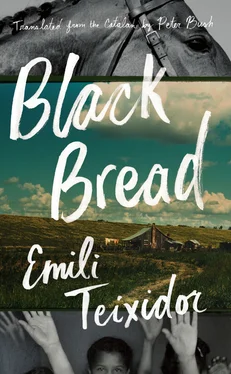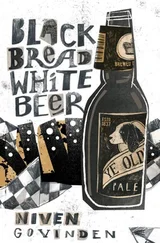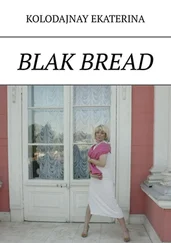We took it that not wanting to show his face meant that Dad Quirze refused to accompany Cry-Baby to her communion. Not because he didn’t want to support her, but because the priest and Uncle Quirze couldn’t stand the sight of one another. Even though she wasn’t a woman overly keen on mass, Ció had no difficulty in supporting the girl and even going to the altar and kneeling to receive the sacred wafer on such a day. However, Dad Quirze was tough as steel and we didn’t know why he held that attitude towards the priest, who seemed polite and unassuming enough. With the exception of Ció, everyone on the farm used the slightest excuse to skip mass, Grandmother Mercè because she was too old and could hardly walk, Grandfather Hand because he was away almost the whole year and nobody ever knew where he was, Dad Quirze because he said he went to the monastery chapel with his friend, Father Tafalla, Uncle Bernat because he disappeared with his young friends from the farms round-and-about and nobody was going to keep them on a leash, Aunt Enriqueta because she said she went to the cathedral in Vic, that she preferred all those canons and bishops in their finery…, and the hands did whatever they wanted and nobody asked them what they did or didn’t do when they had a free day. Aunt Ció was the only one who ever put in an appearance in the parish church—“put in an appearance” was her way of saying to go to morning mass, or else “drop by,” or “it’s a good idea to cross the threshold now and then”—and she also attended the occasional big religious ceremony like the Corpus procession, the singing in the month of the Virgin Mary and a few Lenten or Novena sermons, when the preacher was renowned and silver-tongued, or so they claimed.
The heart-searching began the moment the school opened the list to inscribe pupils who were going to take their First Communion that year. Cry-Baby had already missed out one year and couldn’t wait another before “putting in an appearance.” Grandmother, Ció and Dad Quirze went into a huddle after supper because the date for registering was almost up. Uncle Bernat, Aunt Enriqueta and the hands retired upstairs to bed, to the attic, as Father Tafalla said, making Grandmother split her sides. The decision fell exclusively to Dad Quirze. The school and parish priest had been piling on the pressure. It was compulsory for parents to take their children to communion. But Cry-Baby wasn’t Quirze or Ció’s daughter and that had saved her the previous year. They claimed they were expecting the parents to return, in particular her father, because they said her mother had fled to France with her father at the end of the war as easily as they claimed she’d gone into service with a couple in Barcelona, all to avoid reprisals from the nationals.
“We can’t go on pretending,” Ció implored, “if we don’t want to put in an appearance. The excuse that her parents are abroad won’t do anymore. Everybody knows her father fled to France, and that her mother followed soon after, leaving the girl with us. It’s common knowledge. Up to now we’ve been able to convince them Núria was staying with us while she waited for her parents to come back, but too much time has now gone by and the parish priest is pursuing us. He says she’s too old, that it’s our responsibility…”
Dad Quirze listened and said nothing. He leaned his head over his dirty plate and his beady eyes stared at the knife his hand was waving.
“He says the girl’s behaviour will help dispel her parents’ bad reputation,” insisted Ció.
“They didn’t hound us over Andreu,” whispered Dad Quirze, making no effort to make himself heard.
I was Andreu.
“He’s different,” noted Ció. “Andreu comes from elsewhere and spends time here and time with his mother. Núria is a local, from our parish. Andreu’s town is further away. Florència took him to school with the clergy and to have communion when he was of an age, not so very long ago. She did what she had to. The clergy know that’s the case. They mull it over among themselves. They know the state of play. And they’re hand-in-glove with the bigwigs in the town hall. Your stubbornness could damage us more than you think. All the efforts we’ve made will count for nothing if we get on the wrong side of these people just because you’ve decided to dig your heels in.”
Dad Quirze clammed up again. Quirze and I were playing cards at the other end of the table, but I hung on their every word. Cry-Baby had gone to bed. Young Quirze didn’t seem to care a fig about what the grownups were whispering about.
“I don’t think there’s any way around this,” insisted Grandmother. “We could do what we did with young Quirze…”
Ció looked fearfully at Grandmother: “The priest wants it to take place in the parish church, and wants her to appear before the whole congregation. We can’t repeat with her what we did with Quirze. They want the daughter to atone for the sins of her father; they want to see the rebel’s daughter bow her head!”
Dad Quirze mumbled, as if he was talking to himself: “For Christ’s sake, that blasted cleric doesn’t care a damn about the girl! The bastard wants me and every man-jack of us to lick his boots! And if he could, he’d like to see Fonso drag himself through the church hanging his tongue out, begging him to allow her to take communion!”
The women looked appalled and glanced at us children as if apologizing for the father’s oaths.
“You should think it over…” resumed Grandmother warily after a moment. “Fonso says… Fonso would agree… we have no choice, they leave us no other option and we can’t delay it any longer.”
“I swore I’d never step inside that place while I had a breath of life inside me!” Dad Quirze now raised his voice.
“Times have changed,” responded Grandmother. “We can’t be tied to what we said or didn’t say.”
“Perhaps Father Tafalla can find a solution,” suggested Ció hesitantly.
When they told us to go up to bed, they were arguing over who should broach the problem with the monastery’s Father Superior. Within days Cry-Baby was added to the list of new communicants and began to attend the twice-weekly catechism classes. The little girl’s new timetable obliged her to go to the parish church as soon as afternoon school was finished and return home by herself. Grandmother suffered those first few days and made us go out to look for her, until Dad Quirze said: “If she’s big enough to take her First Communion, she’s big enough to come home by herself. She knows the way by now.”
Father Tafalla had promised Dad Quirze he would speak to the parish priest so the girl could take First Communion in the monastery chapel, by herself, in a private ceremony. That was the only way Dad Quirze would assent to her going to catechism classes, or doctrine, as they called it.
The conversations between the priest and the Superior weren’t easy. The precedent set by Quirze, who had done just that, namely, a ceremony by himself in the monastery chapel, with only his closest family in attendance, was no help. His case, according to the priest, belonged to the period immediately after the war, when the church hadn’t been entirely rebuilt. Everybody else just about avoided taking their First Communion in the monastery chapel, he said, given the way the church had been left, with only its walls and altar left intact, it was a miracle it was still standing. It was different now, the priest continued and Ció explained what Father Tafalla had said to her: “He says it is different now, it’s the community that matters, the example, showing she belongs to the parish. He tried so many angles! No exceptions could be made. I don’t think we can not go through the performance this time.”
Читать дальше












